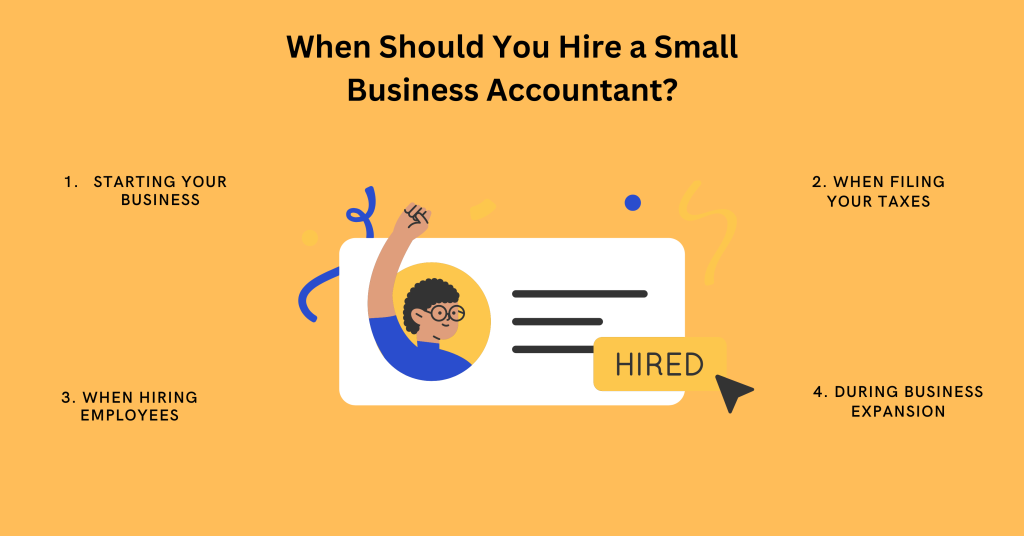Starting and running a small business in the UK is both exciting and challenging. There’s so much to think about—from getting customers and managing staff to keeping your finances in check. But, as many entrepreneurs quickly discover, managing finances can be one of the toughest parts of running a small business. You might be asking yourself, “Do I need an accountant for my small business?” In this guide, we’ll walk you through everything you need to know about UK small business accountants. We’ll discuss their benefits, the services they provide, and how they can make your life as a small business owner easier. By the end of this post, you’ll have a clear idea of why hiring an accountant could be one of the best decisions you make for your business.
Top Reasons Your Small Business Needs an Accountant
Small business owners often wear many hats, but handling finances without professional help can lead to costly mistakes. Whether you’re just starting or running an established company, hiring an accountant can save you time, money, and stress.
Here’s why every UK small business should consider working with an accountant:
1. Stay on Top of Your Finances
An accountant does more than simply record your business transactions. They help you keep track of your income and expenses, making sure your books are accurate and up to date. A small business accountant can help you understand where your money is going and how to manage your cash flow. This is crucial for maintaining the financial health of your business, especially when unexpected expenses arise.
2. Ensure Tax Compliance and Save on Taxes
UK tax laws can be confusing, particularly for new business owners. If you’re a sole trader, limited company, or partnership, you’ll need to deal with different tax obligations. A small business tax accountant ensures you stay compliant with HMRC regulations, file your taxes on time, and avoid hefty penalties.
Moreover, accountants know the tax deductions and allowances available to small businesses. They can help you minimise your tax bill by identifying opportunities for savings you might otherwise miss. This means you’ll only pay what you owe—and not a penny more.
3. Free Up Your Time to Focus on Growing Your Business
Managing your accounts can be a time-consuming task, especially if you’re not familiar with financial terms or accounting software. By hiring a small business accountant, you can delegate this responsibility to a professional, freeing up your time to focus on other aspects of your business—like growing your customer base or developing new products.
4. Get Expert Financial Advice
Beyond bookkeeping and tax filing, small business accountants offer valuable financial advice. They help you create a financial plan that aligns with your business goals, from managing daily expenses to planning for future investments. If you’re looking to expand or take on new employees, they can guide you through the financial implications of these decisions and make sure you’re financially prepared.
Key Services Offered by Small Business Accountants
A good UK’s small business accountant offers more than just basic bookkeeping services. Here are some of the key online small business accounting services in UK that can benefit your business:
1. Bookkeeping
Keeping your financial records organised is essential. Small business accountants manage your day-to-day financial transactions, including invoices, expenses, and payroll, ensuring that everything is tracked and recorded accurately.
2. Tax Preparation and Filing
Whether it’s income tax, VAT, or corporation tax, filing your taxes can be overwhelming. A small business accountant will take care of your tax returns, making sure they’re accurate and submitted on time. They can also ensure you’re compliant with HMRC and help you navigate complex tax rules.
3. Cash Flow Management
Cash flow is the lifeblood of any business. Your accountant will help you manage your cash flow effectively, so you have enough working capital to cover your expenses and investments. They can also help you spot potential cash flow issues before they become a problem.
4. Financial Planning and Budgeting
Accountants provide strategic advice on how to allocate your resources efficiently. They help you set realistic financial goals and create a budget that ensures your business operates smoothly, without unnecessary expenses eating into your profits.
5. Payroll Services
If you employ staff, payroll management is one of the most crucial, yet time-consuming, tasks. An accountant can manage payroll, ensuring your employees are paid correctly and that all PAYE, National Insurance, and pension contributions are handled in accordance with UK regulations.
6. Compliance and Legal Advice
Running a business means adhering to numerous legal requirements, from tax laws to employee benefits. Your accountant ensures that you comply with all relevant laws and regulations, reducing the risk of legal issues and fines.
When Should You Hire a Small Business Accountant?
Many business owners delay hiring an accountant until they feel overwhelmed by their finances, but this can lead to missed opportunities and costly errors. Here are some key times when you should definitely consider bringing a small business accountant on board:

1. Starting Your Business
If you’re just getting started, an accountant can help you choose the best legal structure for your business (sole trader, limited company, etc.) and set up your bookkeeping system. They’ll also advise on VAT registration and help with your initial tax filings.
2. When Filing Your Taxes
Tax time can be stressful for any business owner. An accountant will ensure that your tax returns are filed accurately and on time, helping you avoid penalties. They’ll also identify potential tax deductions to help you reduce your tax bill.
3. When Hiring Employees
Once you start hiring staff, managing payroll, tax contributions, and pensions becomes a significant part of your financial responsibilities. A small business accountant can take over these tasks, ensuring your payroll runs smoothly and meets UK legal requirements.
4. During Business Expansion
As your business grows, your finances become more complex. Whether you’re expanding into new markets, launching new products, or taking out loans, your accountant will guide you through the financial planning needed to support growth.
Online Accountants – A Smart Move for UK Small Businesses
In today’s digital world, you don’t necessarily need to visit an accountant’s office in person. Many small businesses are now turning to UK online accountants for small businesses. These professionals provide the same services as traditional accountants but with the added convenience of cloud-based accounting software.
Benefits of Hiring an Online Accountant:
- Affordability: Online accountants often offer more affordable rates than traditional firms.
- Real-Time Access to Financial Data: Using cloud-based software, online accountants give you real-time insights into your business’s finances, allowing you to monitor cash flow, track expenses, and make informed decisions instantly.
- Convenience: No need for face-to-face meetings—everything is handled online. This makes it easier for busy entrepreneurs to stay on top of their financial obligations.
How to Choose the Right Accountant for Your Small Business
Choosing the right accountant can have a huge impact on your business’s success. Here are some tips for finding the perfect fit:
- Look for Relevant Experience: Choose an accountant with experience working with small businesses, particularly within your industry. They’ll have a better understanding of the challenges and opportunities specific to your business.
- Check Credentials: Ensure that your accountant is qualified and registered with a recognised UK body, such as the ACCA, ICAEW, or AAT.
- Understand Their Services: Make sure the accountant offers the services you need, from bookkeeping to tax preparation, payroll management, and financial planning.
- Technology Expertise: If you prefer to use online or cloud-based accounting, ensure your accountant is familiar with the necessary software and tools.
Conclusion
At the end of the day, hiring an accountant for your small business is not just an added expense—it’s an investment in your business’s long-term success. A small business accountant will help you manage your finances, ensure tax compliance, and provide valuable insights that drive growth. Whether you choose to work with a traditional accountant or opt for an online accountant for small businesses in the UK, make sure to find someone who understands your business’s needs and goals. With the right financial partner, you can focus on what you do best—running and growing your business.
FAQs
1. Do I need an accountant for my small business in the UK?
Having an accountant can help you manage finances, ensure tax compliance, and free up time to focus on growing your business.
2. What services do small business accountants provide in the UK?
Small business accountants offer services such as bookkeeping, tax filing, payroll management, cash flow management, and financial planning.
3. How can a small business accountant save me money on taxes?
Accountants can help identify tax deductions and allowances, ensuring you pay only what you owe and avoid penalties.
4. When should I hire an accountant for my small business?
It’s a good idea to hire an accountant when starting your business, filing taxes, hiring employees, or planning for expansion.
5. What is the difference between online accountants and traditional accountants?
Online accountants offer the same services as traditional ones but provide real-time financial data access and greater convenience via cloud-based software.
7. How much does an accountant cost for a small business in the UK?
Accountant fees vary depending on the services you need, but online accountants are often more affordable for small businesses.
8. How can I choose the right small business accountant in the UK?
Look for experience, relevant qualifications, and expertise with cloud-based accounting tools, especially if you prefer online services.
